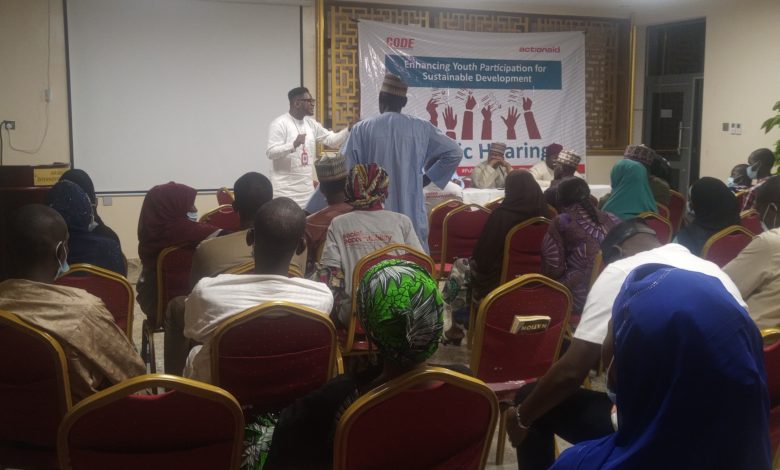Borno Youths Demand Improved Inclusion In Government’s Decision-Making Process
The youths made the demand after an interaction with a panel comprising the representatives of the state House of Assembly and other stakeholder.

Youths in Borno State, Northeast Nigeria, have called on the government to prioritise the need for their participation and inclusion in programmes and policies that pertain to their social and economic empowerment needs.
The youths who made this demand at a town hall meeting organised by Connected Development (CODE), a Nigerian nongovernmental organisation, said involving them in governance would ease their transition from the post-conflict and COVID-19-related economic setbacks they have suffered.
Since the eruption of the Boko Haram insurgency, thousands of young persons have either lost their opportunities for education or economic participation due to the devastations caused by the 12-year-old war.
The COVID-19 pandemic has also dimmed the lights of many young entrepreneurs so much that many have lost their businesses while those who are unskilled have resorted to all kinds of crimes and vices.
The Borno State government has various key ministries that are youth and empowerment-centric, but the youths during the town hall meeting insisted they have not been adequately represented in most of the government programmes.
During the town hall, the youths interacted with a panel comprising the representatives of the state House of Assembly, the Ministry of Finance, Budget and Economic Development, Commerce and Trade.
They observed that despite being one of the most affected strata of society, the government has not accorded adequate budgetary provisions to programmes that could positively impact their welfare.
Tanimu Mbaya, the state chairman of the National Council on Youth, questioned the rationale behind the insignificant allocation to youth empowerment in the 2021 budget of the Borno State Ministry of Sports and Youth Empowerment.
According to him: “how can a ministry that is 100 per cent youth-centric be allocating only N300 million for youth empowerment in a budget size of over N2 billion.”
“This is not acceptable, and we insist that the government should direct the ministry to give more allocation to youth empowerment above the sporting aspect of the ministry.”
They also called on the Borno State Ministry of Trade and Investment as well as the Ministry of Finance to consult the youth during their budget planning so that the youth would not be unnecessarily left out in the scheme of things.
Musa Gambo, who is the state lead of CODE’s Follow the Money programme in Borno said the town hall was organised following recent research conducted by CODE in Borno State under the Youth Organizing Leadership (YOL) project which is funded by Action Aid Nigeria.
Currently at its third-year phase, the YOL project now “focuses on the aspect of enhancing public service delivery through the inclusion of young people in the governance.”
“We are now presenting data that can help improve knowledge-based advocacy to duty bearers to include youth and consider gender-responsive and youth-focused public service delivery,” Gambo said.
“That was why we invited officials from the state House of Assembly, Ministry of Trade and Investment, Youth and Sport as well as the Ministry of Budget and Economic Planning which are the key areas in the government that have a lot to do with appropriation and allocation of resources.”
One of the panellists from the Ministry of Trade and Investment advised the youth to avoid over-dependence on the government by learning crafts and trades that could help them navigate the challenges of joblessness after graduating from school.
CODE, which is empowering marginalised communities in Africa with access to information on how to better engage their government for the implementation of public services, had a town hall session with 70 selected participants who are largely youths of Borno and representatives of the government
Support Our Journalism
There are millions of ordinary people affected by conflict in Africa whose stories are missing in the mainstream media. HumAngle is determined to tell those challenging and under-reported stories, hoping that the people impacted by these conflicts will find the safety and security they deserve.
To ensure that we continue to provide public service coverage, we have a small favour to ask you. We want you to be part of our journalistic endeavour by contributing a token to us.
Your donation will further promote a robust, free, and independent media.
Donate HereStay Closer To The Stories That Matter




